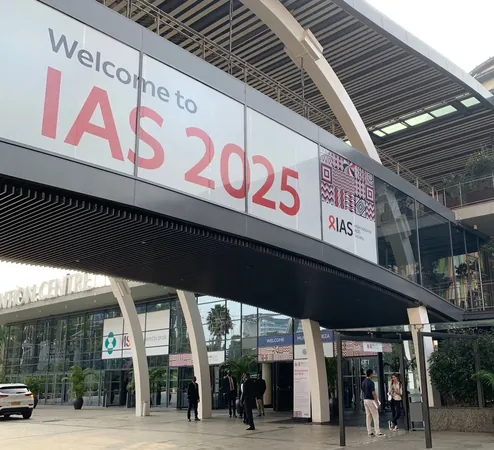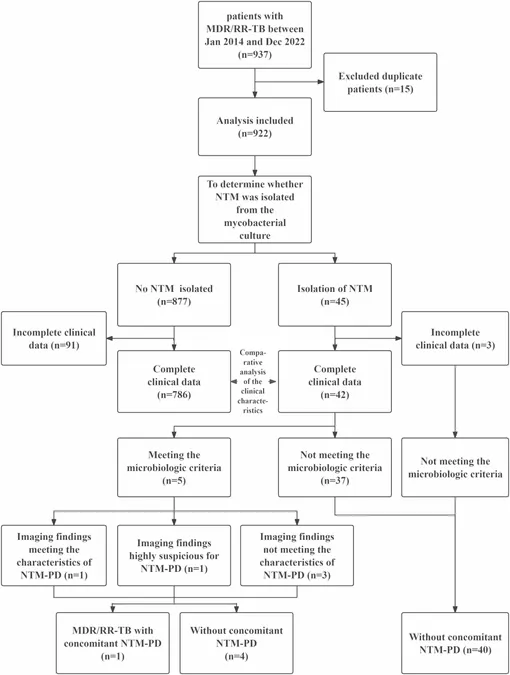
HIV Self-Testing Sparks Debate at IAS 2025: A Game-Changer or Missing the Mark?
2025-07-13
Author: Siti
The Push for Self-Testing: A Step Forward in HIV Prevention
At the ongoing International AIDS Society (IAS) 2025 meeting in Kigali, Rwanda, experts are championing the need to expand HIV self-testing as a crucial strategy to counterbalance funding cuts in HIV prevention efforts. Cheryl Johnson, a technical officer at the World Health Organization (WHO), emphasized the potential of self-tests to preserve hard-won progress in treatment and prevention.
Mixed Messages from WHO: A Missing Recommendation?
However, the enthusiasm for self-testing was tempered by the WHO's announcement surrounding lenacapavir, a promising long-acting HIV prevention injectable. Despite Johnson's strong advocacy for self-testing, Michelle Rodolph, another WHO technical officer, indicated that there wasn't enough evidence to support self-testing in the upcoming guidelines for lenacapavir, which favor rapid diagnostic tests instead.
The Importance of Evidence vs. Practical Application
Rodolph clarified that while self-testing lacks official recommendation for long-acting injectables, it remains a crucial implementation tool in certain contexts, emphasizing the need for flexibility and increased testing opportunities. She urged researchers to investigate self-testing implementations to gather data and possibly reshape future guidelines.
Challenges in HIV Funding: A Looming Crisis?
The topic of self-testing was part of a broader discussion on challenges facing HIV prevention as funding transitions occur. The conference highlighted the significant budget reduction from the U.S. President’s Emergency Plan for AIDS Relief (PEPFAR), which could jeopardize ongoing efforts, particularly in sub-Saharan Africa, where funding is vital.
Self-Testing: An Increasingly Accessible Tool
HIV self-tests, which include methods like gum swabs or finger pricks, have seen a surge in interest. The WHO has recommended self-testing for various stages of Pre-Exposure Prophylaxis (PrEP) and post-exposure prophylaxis. Johnson reported that 23 African nations distributed approximately 6.3 million self-testing kits, with a notable uptick in participation among men.
New Data Highlights Success Stories in Self-Testing
Brooke Nichols from Boston University shared compelling research indicating that HIV self-testing could lead to significant additional HIV-positive diagnoses across several African countries. Notably, Kenya demonstrated a noteworthy increase in antiretroviral initiations, showcasing the intervention's potential impact.
Cost-Effective Solutions: The Way Forward?
Johnson concluded with an optimistic note on the cost-effectiveness of self-testing, suggesting it could alleviate pressures on health facilities stretched thin by previous capacity constraints. As the conference progresses, these discussions could shape new pathways for HIV prevention and treatment globally.





 Brasil (PT)
Brasil (PT)
 Canada (EN)
Canada (EN)
 Chile (ES)
Chile (ES)
 Česko (CS)
Česko (CS)
 대한민국 (KO)
대한민국 (KO)
 España (ES)
España (ES)
 France (FR)
France (FR)
 Hong Kong (EN)
Hong Kong (EN)
 Italia (IT)
Italia (IT)
 日本 (JA)
日本 (JA)
 Magyarország (HU)
Magyarország (HU)
 Norge (NO)
Norge (NO)
 Polska (PL)
Polska (PL)
 Schweiz (DE)
Schweiz (DE)
 Singapore (EN)
Singapore (EN)
 Sverige (SV)
Sverige (SV)
 Suomi (FI)
Suomi (FI)
 Türkiye (TR)
Türkiye (TR)
 الإمارات العربية المتحدة (AR)
الإمارات العربية المتحدة (AR)